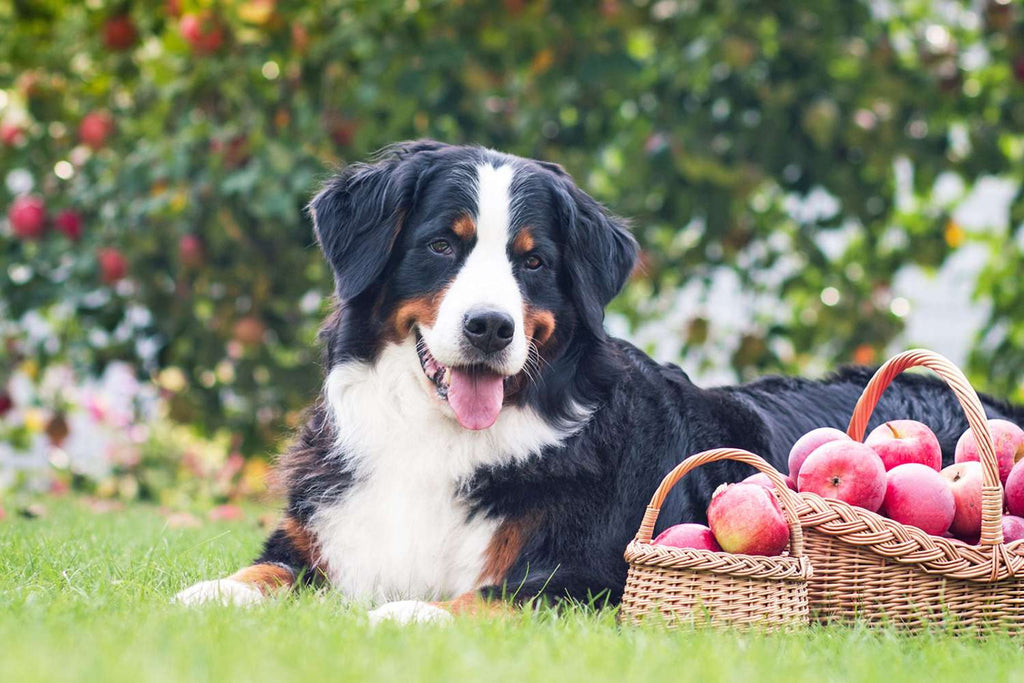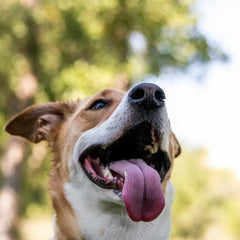Introduction
As dog owners, we're always seeking the best for their furry friends, ensuring that their diet is both nutritious and safe. With the human trend of incorporating more fruits and vegetables into daily diets, many are left wondering, "Can my dog eat apples?" Let's delve into this topic, exploring the benefits and risks of offering this crunchy treat to our canine companions.
The Do's and Dont's of Apple Snacking
Apples can be a refreshing and healthy treat for dogs, but it's essential to serve them correctly.
Do's:
- Wash Thoroughly: Always wash apples to remove any pesticides or chemicals.
- Serve in Moderation: Like any treat, apples should be given in moderation and not replace a balanced diet.
- Remove Seeds and Core: Apple seeds contain cyanide, which can be harmful in large quantities. Always remove the seeds and core before serving.
- Offer Sliced: Sliced apples are easier for dogs to chew and digest.
Don'ts:
- Avoid Whole Apples: Offering a whole apple can be a choking hazard, especially for smaller dogs.
- No Apple Desserts: While apples themselves can be healthy, apple pies or apple-flavored products often contain sugars and other ingredients harmful to dogs.
- Beware of Rotten Apples: Ensure the apple is fresh. Rotten apples can ferment and lead to upset stomachs.
Risks of Apples for Dogs
While apples can be a nutritious treat, there are potential risks to be aware of.
- Choking Hazard: Especially for small dogs, large apple chunks can pose a choking risk.
- Digestive Upset: Some dogs might have sensitive stomachs, and too many apples can lead to diarrhea or stomach upset.
- Toxic Seeds: As mentioned, apple seeds contain cyanide. While a few seeds might not harm your dog, consuming them in large quantities can be problematic.
- Pesticide Consumption: If not properly washed, apples might have residual pesticides that can be harmful to dogs.

Apple Benefits: More Than Just a Crunchy Snack
Apples offer several health benefits for dogs:
- Dietary Fiber: Good for digestion.
- Vitamins A and C: Beneficial for a dog's bones, muscles, and immune system.
- Low in Protein and Fat: Ideal for older dogs who require a low-fat diet.
- Teeth Cleaning: The action of eating an apple can help clean a dog's teeth and freshen their breath.
FAQs: Apples and Dogs Demystified
1. How often can I give my dog apples?
While apples are safe for most dogs, they should be considered a treat. Depending on the dog's size, a few slices every other day should be sufficient.
2. Can puppies eat apples?
Yes, puppies can eat apples. However, given their smaller size and developing digestive systems, it's crucial to offer them in smaller quantities and ensure they're adequately chewed.
3. Are there other fruits I should avoid giving my dog?
Yes, some fruits like grapes and raisins are toxic to dogs and should be avoided entirely. Always research and consult with a veterinarian before introducing a new fruit.
4. My dog ate a whole apple with seeds. What should I do?
While consuming a few seeds might not harm your dog immediately, it's always best to observe them for any signs of distress or discomfort and consult a vet if concerned.
5. Can I give my dog apple juice?
It's best to avoid giving dogs apple juice. Many commercial apple juices contain added sugars and other ingredients that can be harmful to dogs.
Conclusion
Apples can be a delightful, nutritious treat for our canine companions when offered correctly. By understanding the potential risks and benefits, dog owners can confidently incorporate this fruit into their pet's diet, ensuring both health and enjoyment. Always remember, the key to a happy dog is a balanced diet, love, and understanding their unique dietary needs.




